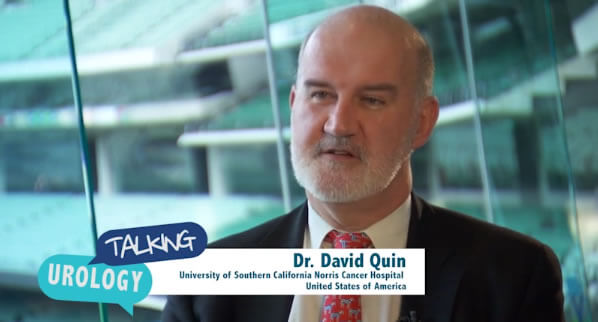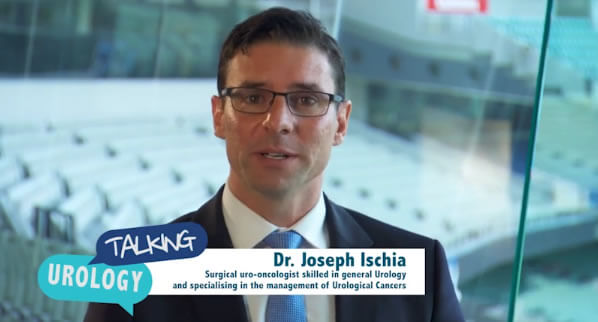APCC 2017 – Dr Brian Chapin
Dr Brian Chapin asks if we might be too enthusiastic treating the prostate in men with metastatic disease.
Talking Urology podcast transcript
APCC 2017 Interviews - Brian Chapin
Joseph Ischia: I’m talking with Brian Chapin from MD Anderson Cancer Center. Brian, you’re here all the way from the States to give us some great talks and what you think we’re doing right or wrong in treating men locally when they’ve already got metastatic disease, and what are the key take-home points you want us to take away from your talks?
Brian Chapin: Yeah, I think the critical things are that there is a lot of enthusiasm for trying to be aggressive in younger fit patients, mostly focusing on patients with low volume metastatic disease in trying to treat them aggressively, maybe and a bit naively with local tumors like radiation to the prostate or radical prostatectomy. I think that there are likely some men that will benefit from this and I think that this needs to be evaluated on a prospective clinical trial as we are doing now at the phase 2 and then a phase 3 coming shortly through the Southwest Oncology Group in the US. But right now I think the problem with it is that the enthusiasm is a bit much and people are doing things off trial and we don’t have evidence of showing that there is a benefit at this time.
Joseph: And what are going to be the inclusion criteria for this SWOG trial that’s coming? We’ve heard a lot about it. We’re all eagerly anticipating it.
Brian: Sure. Well, it’s being presented to the National Cancer Institute on September 20th and if it gets approval then we’re looking at opening it up this coming spring. It’s basically any patient who has metastatic prostate cancer that’s responding to standard systemic treatments. So any of the systemic therapies we’ve been talking about here in the conference. We’re using the NCCN Guidelines as the standard base. So as long as patients are responding to that within its first six-month period then they can be enrolled into the study where they’ll be randomized to continued standard treatment versus standard treatment with the local treatment of the prostate being radiation or surgery.
Joseph: But no limitation on volume of metastatic disease?
Brian: So there’s not and then part of that is because we want to have an unbiased approach because in some ways the patients with more aggressive local disease and even more aggressive metastatic disease may actually have the most incremental benefit even though they may have the shortest survival.
Joseph: Fantastic! Thank you very much Brian. We really appreciate you coming all the way here.
Brian: My pleasure.











